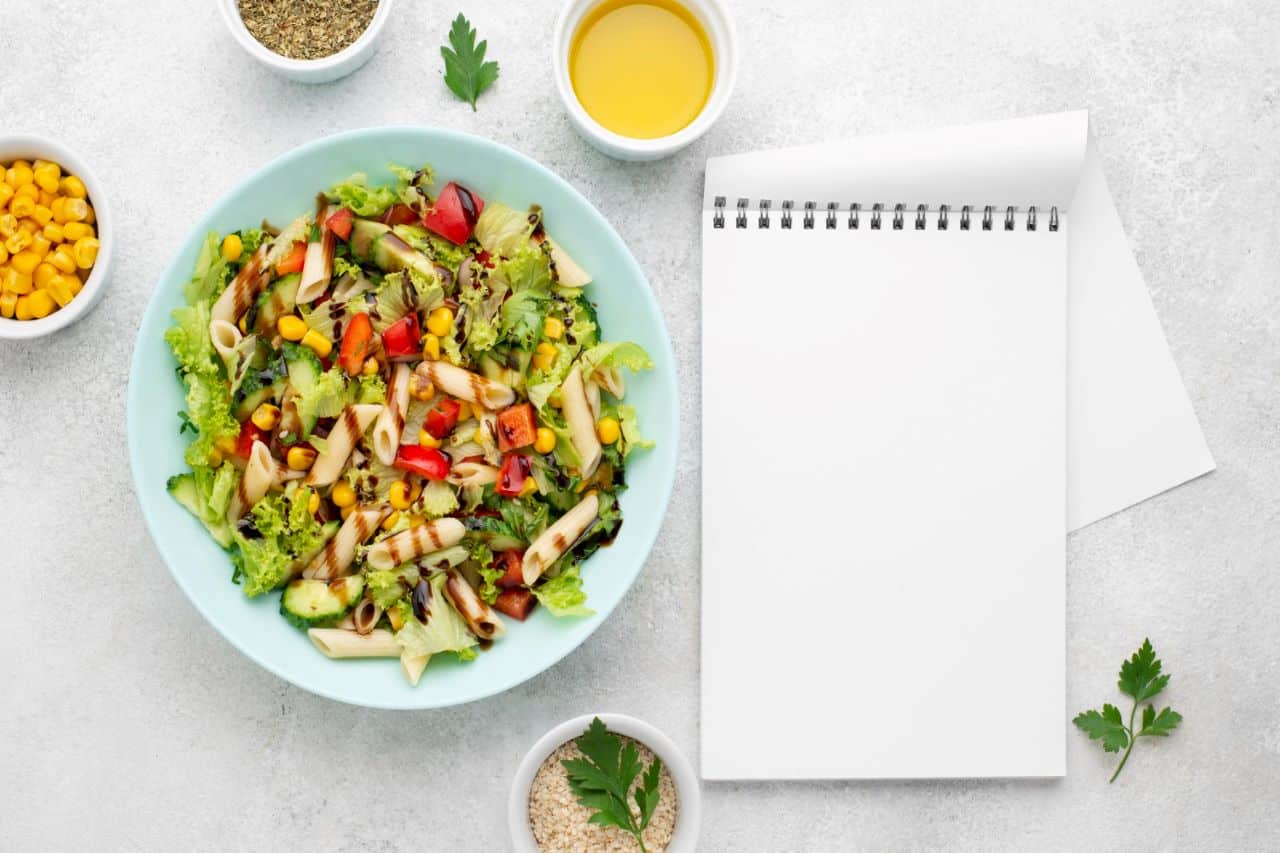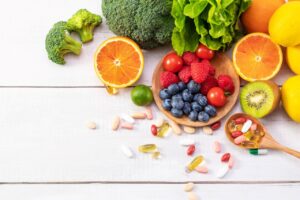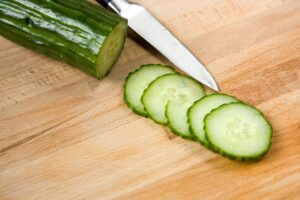If you are a Vegan, there is no doubt that you will face a lot of challenges when it comes to eating out. However, this does not mean that there are no options for Vegans. A vegan diet is a plant-based diet that excludes all animal products. This means that vegans have to take extra care when shopping for their food and grocery items. This article will provide a comprehensive guide to vegans on what they should take and avoid when it comes to nutrition.
Vegans need to take in plenty of fruits, vegetables, whole grains, nuts, seeds, legumes, and soy products – which are all foods rich in nutrients like protein and fiber. They should also avoid processed oils such as canola oil or vegetable oil due to the high amount of omega-6 fatty acids in these oils.
What is it like being a Vegan?
Being vegan is an incredibly rewarding lifestyle choice. For many people, the decision to go vegan is based on a desire to live a more ethical, compassionate life in which animals are not used for our benefit. But for others, becoming vegan is about taking control of their health and creating a nutritious and balanced diet.
No matter what the primary motivation for going vegan is, the positive impacts of the lifestyle are undeniable. It’s an incredibly healthy way of life, and a great way to reduce your environmental footprint. So, what is it like to be a vegan?
First and foremost, it’s important to note that being vegan is a lifestyle, not a diet. Vegans abstain from all animal products, including honey and dairy, as well as byproducts of animal slaughter like gelatin and casein. This means that vegans must be mindful of what they put into their bodies and strive to create a nutritious and balanced diet.
The good news is that there are countless vegan-friendly foods out there that offer a wide variety of nutrients. Plant-based proteins like legumes, nuts, and seeds can provide essential amino acids and minerals. Whole grains like quinoa and oats are a great source of fiber and B vitamins. Fruits and vegetables are an incredible source of vitamins, minerals, and antioxidants. And, the options for vegan-friendly dairy and egg substitutes are growing every day.
The benefits of going vegan extend beyond just physical health. As a vegan, you’re taking a stand against the unethical and unsustainable treatment of animals for food production. You’re reducing your environmental footprint by avoiding animal products, which have a much higher water and land footprint than plant-based alternatives. And, you’re creating a more compassionate world by showing that animal welfare is important to you.
Being vegan isn’t always easy. It requires a lot of research and dedication to find vegan-friendly food options and ensure that you’re getting all the essential nutrients. But, if you’re willing to put in the work, it can be incredibly rewarding. As a vegan, you can feel good knowing that your lifestyle is making a positive difference every single day.
What should you choose to eat out if you are Vegan?
Are you a vegan looking for something to eat out? Eating out as a vegan can be a bit tricky, as there are still many restaurants that don’t offer much in the way of vegan-friendly options. Fortunately, more and more restaurants are starting to offer vegan-friendly dishes, so you can still enjoy a delicious meal without missing out on your favorite flavors.
If you’re looking for something to eat out, here are some vegan options you should consider:
1. Salads
Salads are a great vegan-friendly option when eating out. They’re usually high in fiber and vitamins, and you can customize them to your taste. Ask for your salad to be made with no animal products and to be topped with vegan-friendly dressings.
2. Sushi
Most sushi restaurants offer vegan-friendly options, such as vegetable rolls, cucumber rolls, and avocado rolls. Be sure to ask the restaurant if they use any animal products in their sushi.
3. Indian Food
Indian food is a great vegan option when dining out. Many traditional Indian dishes are already vegan, and you can find vegan-friendly versions of tandoori dishes, curries, and other favorites.
4. Mexican Food
Many Mexican restaurants have vegan-friendly options, such as burritos, tacos, and quesadillas. Be sure to ask if they use any animal products in their dishes.
5. Italian Food
Italian food is also a great vegan option when eating out. Many Italian restaurants offer vegan-friendly options such as vegetable pizzas, pasta, and risotto.
6. Chinese Food
Chinese restaurants often offer vegan-friendly dishes, such as vegetable stir-fry, vegetable fried rice, and noodle dishes.
7. Thai Food
Thai food is a great vegan option when eating out. Look for dishes such as stir-fried vegetables, veggie curries, and rice noodles with vegetables.
If you’re looking for something to eat out as a vegan, you have plenty of delicious options. With a bit of creativity and knowledge, you can easily find vegan-friendly meals at restaurants near you. Bon Appetit!
What should you avoid eating if you are Vegan?
If you are vegan, you are likely already aware of the many delicious plant-based foods available. However, there are certain foods that you should avoid if you want to maintain a vegan lifestyle. Here is a list of foods that are not vegan-friendly and should be avoided.
1. Dairy Products:
Dairy products, including cheese, milk, yogurt, and butter, all contain animal-derived ingredients and should be avoided. Some vegan alternatives include soy, almond, coconut, and oat milk, as well as vegan cheese and yogurt.
2. Honey:
Honey is made by bees, so is not vegan-friendly. If you’re looking for a sweetener, try using maple syrup, agave syrup, or dates.
3. Eggs:
Eggs are not vegan, as they come from chickens. If you’re looking for something to replace eggs in baking, try using a banana, applesauce, or a chia egg.
4. Gelatin:
Gelatin is a protein derived from animal bones and is often used in candy and other desserts. If you’re looking for a vegan alternative, try agar.
5. Meat:
All types of meat, including beef, chicken, pork, and fish, should be avoided by vegans. If you’re looking for a protein source, try tofu, tempeh, seitan, beans, quinoa, nuts, and seeds.
6. Fish Sauce:
Fish sauce is made from a variety of fish, is not vegan-friendly, and should be avoided. If you’re looking for an alternative, soy sauce is an option.
7. Refined Sugars:
Many refined sugars, such as white sugar, are bleached using bone char, so they should be avoided by vegans. If you’re looking for a vegan alternative, try using coconut sugar or maple syrup.
These are some of the foods that should be avoided if you’re following a vegan diet. By avoiding these foods, you can ensure that you are sticking to a vegan lifestyle and making sure you are eating a balanced, healthy diet.
Are Vegans allergic to any food type?
Are vegans allergic to any food type? This is a question many vegans have when they first begin their vegan journey. The short answer is yes, some vegans can be allergic to certain food types, just like any other person.
Just like with any other person, there are certain food types that are more likely to cause an allergic reaction in vegans than in non-vegans. These include wheat, soy, nuts, and certain fruits and vegetables. Even if you are vegan, it is still important to be aware of which foods may be potentially allergenic.
Wheat is one of the most common food allergens and is available in many vegan foods. Oats, barley, spelled, and rye are all forms of wheat and should avoide for those who have a wheat allergy.
Soy is another food that is commonly found in vegan dishes, and it can cause anaphylactic shock for some people. If you have a soy allergy, you should avoid all types of soy products, including tofu, soy milk, and soy sauce.
Nuts are also a common allergen for vegans. Though some nuts are safe to eat, others can cause severe reactions in some people. It is important to read food labels, as some vegan foods may contain traces of nuts. Peanuts, walnuts, cashews, almonds, and Brazil nuts are the most common allergens.
Fruits and vegetables can also cause allergies in vegans. Some of the most common fruits and vegetables that cause reactions in vegans include tomatoes, avocados, and eggplant. If you have a reaction to one of these foods, it is important to avoid them in the future.
Overall, vegans can be allergic to many of the same food types as non-vegans. It is important to be aware of which foods could potentially cause an allergic reaction and to avoid them. If you do have an allergy, there are many vegan options available that can help you stay healthy and still enjoy a vegan lifestyle.
Does Vegan Food make you healthy?
The answer is a resounding yes! Veganism is a lifestyle that abstains from the consumption of animal-based products including meat, eggs, dairy, and honey. It is a growing movement that is not only beneficial for the animal kingdom, but for human health as well.
Veganism is a fantastic way to reduce your environmental impact by eliminating the need for animal agriculture, which is responsible for a significant portion of global emissions. The vegan lifestyle also reduces the risk of cancer, heart disease, and stroke, while promoting a healthy weight.
The vegan diet is also rich in vitamins, minerals, and other essential nutrients, making it an excellent choice for those looking to optimize their health. Research also suggests that a vegan diet is beneficial for controlling blood sugar levels, reducing inflammation, and improving cholesterol levels.
In addition to the health benefits, vegan food is often lower in saturated fat and cholesterol, which can help reduce the risk of heart disease and stroke. A vegan diet is also typically higher in fiber, which can help with digestion, and weight management, and lower the risk of certain diseases.
It is important to note that, as with any diet, it’s important to focus on whole, unprocessed foods and try to get a variety of nutrients from your meals. Eating a variety of vegan foods can help ensure that you are getting enough of the vitamins and minerals your body needs to remain healthy.
While vegan food can provide a variety of health benefits, it’s important to note that veganism is not a panacea for all of your health issues. It is important to pay attention to other lifestyle choices, such as exercise, stress management, and avoiding smoking.
Ultimately, the decision to go vegan is a personal one. If you’re looking to improve your health, vegan food can certainly be part of the equation.
Conclusion
Eating out is a great way to enjoy the food you love. But if you are vegan it can be challenging at times with options being limited. Here we have outlined ways in earnest to make it easier for you so that you don’t miss out on anything while eating out as a Vegan. I hope you enjoyed the answer to the What Should Vegans Take and Avoid
FAQs
Q: How do I know if a restaurant is vegan-friendly?
A: Most restaurants have menus online, so look for the symbols above. If you’re unsure about a particular establishment, try Googling “vegan+restaurant.”
Q: How do I ask if something is vegan?
A: Before heading out, decide what you want to eat and do some research online. This way, when you arrive at the restaurant, you’ll have an idea of what’s on offer and won’t be caught off guard.
Q: How can I avoid accidentally eating animal products?
A: Ask about ingredients before ordering anything that isn’t obviously vegetarian or vegan (like french fries).











